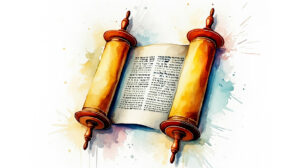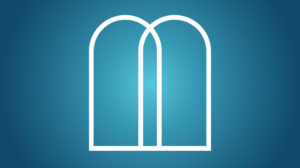Thirteen Tickets to Eternity

The heat spreads like a suffocating blanket and the air shimmers. It is not a day for hiking, but the uninformed vacationer never thought to ask. At last, he spots a kiosk where he can buy a drink. As
Our hapless tourist stops in his tracks and looks back and forth between the man and the drink. The man is clearly unstable and the tourist is terribly thirsty. Other customers seem oblivious to the warning, and gulp down the frosty liquid. Yet, yet… there is a slim possibility that the water is contaminated. He decides that he is not that thirsty after all.
The baalei hamussar tell this story to demonstrate a paradox within us.
We are all fearful of physical danger. The slightest, most remote threat gives us pause and compels us to seek protection. Yet spiritual peril — even certain and definite — often leaves us unmoved. To illustrate, many maaminim trifle casually with the severe prohibition of lashon hara. Yet, if one believes in reward and punishment, Gan Eden and Gehinnom, how can he be so cavalier with his words? Don’t the Torah’s warnings carry more weight than that those of the lunatic at the kiosk?
To unravel this enigma, we require a better understanding of the dynamics of emunah.
Faith or Knowledge?
How do we define emunah? Is it faith or knowledge? If it’s faith, implying that it is not knowable, how do I acquire it? If it’s knowledge, why talk about belief at all? I don’t need to believe in something that I know to be true.
There are certain concepts that we know. An unbiased look at nature reveals a world of intricate design and purpose that attests to the Creator. The experience of Maamad Har Sinai, deeply engrained in our souls and faithfully transmitted through the generations, informs us that the Torah is of divine origin. Study of the Torah, as well as the history of the Jewish People, makes it abundantly clear that our Creator has high expectations of us and that there’s reward and punishment. All this is knowledge.
Yet, we can’t really know Hashem, for He is beyond our limited grasp. The Brisker Rav was once asked: When Mashiach comes, and “the world will be filled with the knowledge of Hashem,” how will we fulfill the mitzvah of emunah? He replied that there will always be areas beyond human comprehension. This demands faith.
Another insight into emunah is based on a verse we recite three times daily, in the tefillah of aleinu: “And you shall know today, and bring it into your inner heart that Hashem is the G-d… there is no one other than He” (Devarim 4:39).
The formula for emunah is twofold: knowing, and then bringing this knowledge into one’s heart. Thus emunah is neither faith nor knowledge alone; it is the state of being faithful to one’s knowledge.
Oops! We could not locate your form.










